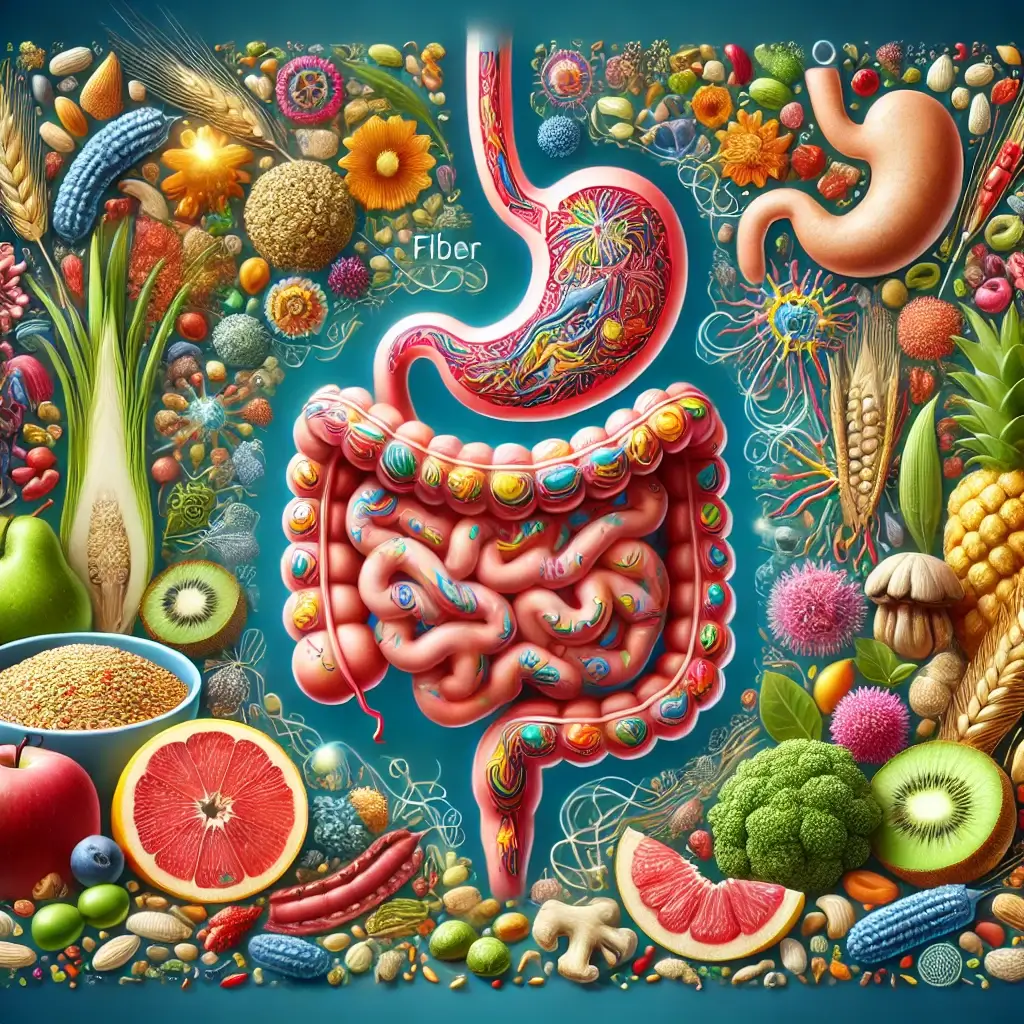The Gut Microbiome’s Role in Health
The human gastrointestinal system is a marvel of biology, hosting trillions of microorganisms collectively referred to as the gut microbiome ecosystem. This intricate ecosystem influences nearly every aspect of health, from digestion and immune function to mental well-being. Maintaining the balance and diversity of microbial community is crucial, and diet plays a significant role in achieving this. Among the essential dietary components, fiber stands out as a cornerstone for gut health.
Understanding Dietary Fiber’s Impact
Dietary fiber, found in plant-based foods, has often been celebrated for its role in preventing constipation. However, its impact goes far beyond maintaining regularity. Fiber serves as fuel for beneficial gut bacteria, supports a robust gut lining, and reduces inflammation. Despite these benefits, many individuals fail to meet their daily fiber needs, potentially compromising their gut health and increasing their risk for chronic diseases.
Scientific Understanding of Gut Health
As our understanding of the gut microbiome grows, the importance of dietary fiber in fostering gut health has become increasingly clear. This article explores the latest scientific findings on the connection between fiber and gut health, providing a compelling case for embracing a high-fiber diet as a cornerstone of well-being.
Fiber’s Role as a Prebiotic
Prebiotics are compounds that nourish beneficial gut bacteria, and fiber is one of the most effective. When fiber reaches the colon, it is fermented by gut bacteria, producing short-chain fatty acids (SCFAs) such as butyrate, acetate, and propionate. These SCFAs play a vital role in gut health by serving as an energy source for colon cells, reducing inflammation, and strengthening the gut lining.
Research on High-Fiber Diet Impact
A 2017 study published in Nature investigated the impact of high-fiber diet on gut bacteria. Researchers found that individuals consuming a high-fiber diet experienced an increase in beneficial bacteria, such as Bifidobacteria and Faecalibacterium prausnitzii, which are known for their anti-inflammatory properties. These changes were associated with improved gut health and a lower risk of inflammatory bowel disease (IBD).
Microbial Diversity Benefits
A diverse gut microbiome is a hallmark of health, offering resilience against harmful bacteria and environmental stressors. Dietary fiber significantly contributes to this diversity. A 2020 meta-analysis in the journal Gut reviewed 32 studies on dietary fiber and gut health connection. The analysis concluded that individuals with higher fiber intake had greater microbial diversity, which is linked to better digestive health and a reduced risk of conditions like irritable bowel syndrome (IBS) and obesity.
Disease Prevention Through Fiber
Dietary fiber has been associated with a reduced risk of gut-related diseases, including colorectal cancer. Fiber promotes the production of SCFAs, which have anti-carcinogenic properties and help maintain a healthy gut environment. A 2019 review in Nutrients found strong evidence linking high-fiber diets to lower colorectal cancer risk. Researchers attributed this to fiber’s ability to support healthy gut flora and minimize inflammation.
Broader Health Benefits
Beyond the gut, fiber’s benefits extend to overall health. A 2021 study in Cell Metabolism highlighted the role of dietary fiber in regulating blood sugar levels and reducing systemic inflammation, both of which are crucial for preventing chronic diseases like diabetes and cardiovascular conditions.
Practical Implementation Tips
Incorporating more fiber into your diet doesn’t have to be complicated. Here are some practical tips:
Fruits and Vegetables: Aim for a colorful variety, including berries, apples, pears, broccoli, and sweet potatoes.
Whole Grains: Swap refined grains for whole grains like oats, quinoa, and brown rice.
Legumes and Nuts: Beans, lentils, chickpeas, almonds, and flaxseeds are excellent choices.
Gradual Increase: Increase fiber intake gradually to avoid digestive discomfort, and drink plenty of water to aid fiber’s movement through the digestive tract.
The recommended daily fiber intake for adults is 25-35 grams, but individual needs may vary based on age, gender, and activity level.
Final Thoughts on Fiber and Gut Health
A high-fiber diet for gut health maintenance is a transformative tool. From enhancing microbial diversity to reducing inflammation and protecting against disease, the benefits of fiber are extensive and scientifically validated. Incorporating fiber-rich foods into your daily meals can have profound effects on your gut microbiome and overall well-being. Start small, be consistent, and let your diet become a cornerstone of your health journey.
Research Citations
David, L. A., et al. (2017). Diet rapidly and reproducibly alters the human gut microbiome. Nature, 505(7484), 579-584.
Ferreira, C. M., et al. (2019). Gut microbiota modulation as a novel therapeutic approach for colorectal cancer. Nutrients, 11(9), 2056.
Canfora, E. P., et al. (2021). Gut microbiota composition and metabolic health. Cell Metabolism, 33(6), 1042-1057.
Gut Editorial Team. (2020). Dietary fibre and gut microbial diversity: a meta-analysis. Gut.
